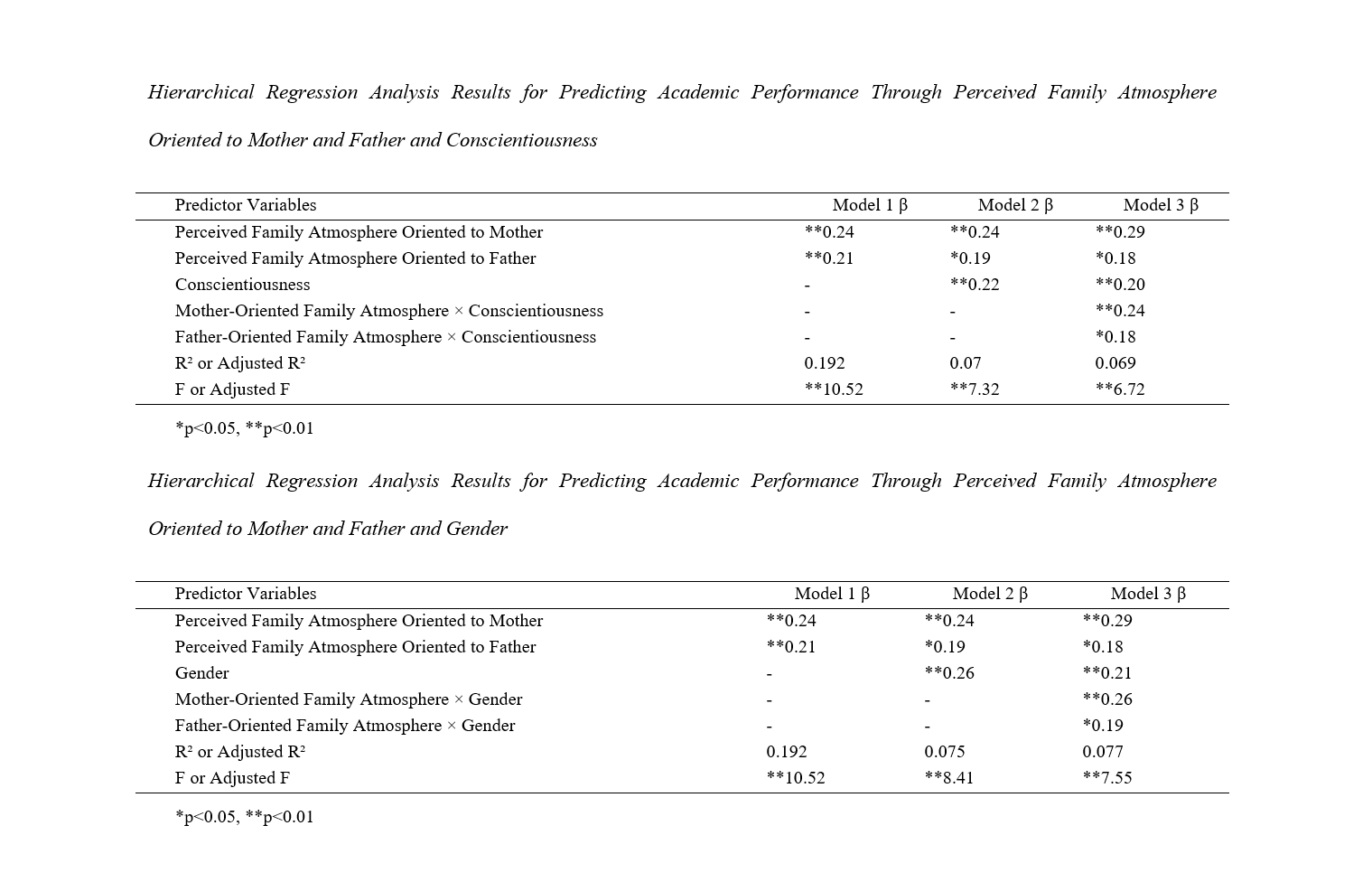The moderating role of conscientiousness and gender in the relationship between perceived family atmosphere and academic performance in students from the city of Babylon, Iraq
Abstract
Objective: The present research aimed to determine the moderating role of conscientiousness and gender in the relationship between perceived family atmosphere and academic performance.
Methods and Materials: The research method was correlational, utilizing hierarchical regression analysis, with the population comprising all students from the University of Babylon in Iraq, among whom 258 were conveniently selected. Data were collected using the Family Atmosphere Perception Questionnaire (Ryan et al., 1996), the Conscientiousness Questionnaire (Costa & McCrae, 2008), and students' academic averages and were analyzed using Pearson's correlation coefficient and hierarchical regression analysis through SPSS software version 26.
Findings: Results showed that there is a positive and significant relationship between perceived family atmosphere in both dimensions of parent-child and mother-child relationships with conscientiousness and academic performance, and between conscientiousness and academic performance (p<0.01). Furthermore, the results of the hierarchical regression analysis indicated that conscientiousness and gender moderate the relationship between perceived family atmosphere and academic performance (p<0.01).
Conclusion: Based on the results of the current study, it can be concluded that perceived family atmosphere is an important variable for enhancing academic performance, considering the role of conscientiousness and gender in Iraqi students.
Downloads

Downloads
Additional Files
Published
Issue
Section
License
Copyright (c) 2024 Maryam Hussein Obeid Al-Soltani (Author); Ali Mehdad (Corresponding Author); Emad Hussein Oibed Al-Marshidi , Asghar Aghaee Jeshvaghani (Author)

This work is licensed under a Creative Commons Attribution-NonCommercial 4.0 International License.








